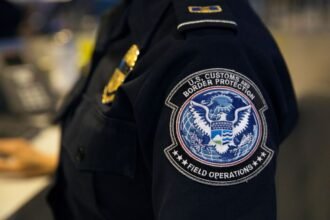The United States remains one of the most popular travel destinations in the world. Whether you want to visit family, attend business meetings, or explore famous landmarks like the Grand Canyon or Times Square, traveling to the U.S. requires proper documentation. For many travelers, this means obtaining a visa, but for citizens of certain countries, a special system known as the Visa Waiver Program (VWP) allows for short visits without a visa. However, most African countries are not part of this program, which means travelers from Africa typically need to apply for a visa. Still, it’s important to understand how the VWP works, which countries are eligible, and what alternative routes or exceptions exist for African citizens and residents. This article will provide a comprehensive overview of how the U.S. Visa Waiver Program operates, the steps involved for eligible travelers, and practical advice for Africans planning to visit the United States.
What Is the U.S. Visa Waiver Program?
The Visa Waiver Program (VWP) is a U.S. government initiative that allows citizens of specific countries to travel to the United States for tourism or business for up to 90 days without obtaining a visa. Managed by the U.S. Department of Homeland Security (DHS) in partnership with the Department of State, the VWP simplifies short-term travel and strengthens security cooperation between the United States and participating countries. Travelers under the program must obtain an authorization through the Electronic System for Travel Authorization (ESTA) before boarding their flight or cruise to the U.S. This digital approval system screens travelers for security risks and ensures they meet eligibility requirements before arrival.
Countries Eligible for the Visa Waiver Program
As of today, 41 countries participate in the U.S. Visa Waiver Program, most of them located in Europe, Asia, and Oceania. Examples include the United Kingdom, France, Germany, Japan, South Korea, Australia, and New Zealand. Only one African country—Mauritius—is currently part of the VWP. This means that citizens of Mauritius can apply for travel authorization through ESTA instead of going through the traditional visa application process. For travelers from other African nations such as Nigeria, Kenya, Ghana, South Africa, or Egypt, a regular U.S. visa is required. The full and updated list of eligible countries is available on the official U.S. Department of State website.
Eligibility Requirements for the Visa Waiver Program
To qualify for travel under the Visa Waiver Program, a traveler must:
- Hold a valid passport from a VWP-participating country with an electronic chip (e-passport).
- Be traveling to the U.S. for business, tourism, or transit for a period of 90 days or less.
- Have a valid return or onward ticket.
- Obtain an approved ESTA prior to travel.
- Not have a previous visa overstay or criminal record that could make them inadmissible to the U.S.
Travelers who do not meet these criteria must apply for a regular visa at a U.S. embassy or consulate. It’s also important to note that approval under ESTA does not guarantee entry—U.S. Customs and Border Protection (CBP) officers make the final decision at the port of entry.
The ESTA Application Process
For citizens of countries eligible for the Visa Waiver Program, the ESTA process is straightforward. The application is completed entirely online through the official U.S. Customs and Border Protection ESTA portal. The process typically takes less than 20 minutes and requires the following steps:
- Complete the Online Form – Applicants must provide personal details such as name, date of birth, passport information, contact details, and travel itinerary.
- Answer Security Questions – The form includes a series of questions related to criminal history, health conditions, previous travel bans, and immigration violations.
- Pay the Application Fee – As of now, the total fee is $21, payable by credit or debit card.
- Submit and Wait for Approval – Most applications are processed within minutes, but applicants are encouraged to apply at least 72 hours before their trip.
An approved ESTA is valid for two years (or until the passport expires, whichever comes first) and allows multiple entries into the United States.
Why Most African Countries Are Not Part of the Visa Waiver Program
The United States selects countries for the VWP based on specific criteria such as economic stability, low visa refusal rates, robust counterterrorism cooperation, and strict passport security standards. Many African nations currently do not meet all these requirements, particularly regarding visa overstay rates and electronic passport systems. Additionally, U.S. authorities closely monitor data on illegal immigration and national security risks, which can affect eligibility. However, some African countries have made progress in strengthening diplomatic relations and improving border security systems, potentially paving the way for future inclusion in the program.
Travel Options for Africans Not Eligible for the Visa Waiver Program
If you are a citizen of an African country that is not part of the Visa Waiver Program, you can still visit the United States through the standard visa application process. The type of visa you need depends on the purpose of your visit. For tourism or short business trips, you will typically apply for a B-1/B-2 visitor visa.
Step 1: Determine the Right Visa Type
For most short-term travelers, the B-1 (business) and B-2 (tourism) visas are sufficient. Business travelers attending meetings, negotiations, or conferences should apply for B-1, while tourists, family visitors, and individuals seeking medical treatment should apply for B-2. The two are often combined into a single B-1/B-2 visa.
Step 2: Complete the DS-160 Form
The DS-160 is the standard online nonimmigrant visa application form. It can be filled out at https://ceac.state.gov. Applicants must answer questions about their background, travel purpose, and employment. After completing the form, a confirmation page with a barcode must be printed for the interview.
Step 3: Pay the Visa Application Fee
The fee for most visitor visas is $185. Payments are made online or through designated bank partners, depending on the country. The receipt is required for scheduling the interview.
Step 4: Schedule and Attend the Interview
Applicants must book an interview at the nearest U.S. embassy or consulate. During the interview, a consular officer will assess your eligibility based on factors like financial stability, intent to return home, and purpose of visit. You’ll need to bring documents including your passport, DS-160 confirmation, payment receipt, photographs, and proof of ties to your home country.
Step 5: Wait for Visa Processing
If approved, the visa is typically stamped in your passport within a few days. Processing times vary depending on location and demand. Once issued, you can use the visa to travel to the United States for up to six months per visit.
Can Africans Use ESTA If They Have Dual Citizenship?
Yes, if an African citizen also holds a passport from a Visa Waiver Program country—such as France, Portugal, or the United Kingdom—they can apply for ESTA using that passport. For example, a Ghanaian with dual French citizenship can enter the United States under the Visa Waiver Program as a French national. However, they must use the same passport for both ESTA application and travel. It’s also important to note that travelers who have visited certain countries—such as Iran, Iraq, Syria, or North Korea—since 2011 may not be eligible for ESTA, even if they hold a passport from a VWP country.
Important Tips for African Travelers Applying for a U.S. Visa
- Be Honest and Accurate: Always provide truthful information on visa applications. Misrepresentation can lead to denial or a permanent travel ban.
- Show Strong Ties to Your Home Country: The most common reason for visa refusal is the assumption that an applicant intends to immigrate. Providing proof of employment, family responsibilities, or property ownership can help establish intent to return.
- Apply Early: Visa processing times can vary, so apply at least one to two months before your planned travel.
- Prepare for the Interview: Practice answering common questions clearly and confidently. Demonstrating clear travel purpose and financial capability improves your chances of approval.
- Keep Documentation Organized: Have all required forms, payment receipts, and supporting documents ready for submission.
Understanding Visa Waivers for Special Circumstances
Although most Africans need visas, there are limited scenarios where visa requirements might be waived temporarily or modified. These include:
- Diplomatic or Official Visits: Government officials or diplomats traveling on official duties may receive visa exemptions under international agreements.
- Transit Without Visa (TWOV): In rare cases, travelers transiting through the U.S. on certain airlines may not need a visa, though this is limited and subject to airline and country agreements.
- Reciprocal Arrangements: Some countries have negotiated special travel arrangements for certain categories of travelers, though these usually don’t replace the visa requirement entirely.
Avoiding Common Mistakes in the Application Process
Many visa applications are denied not because of ineligibility but due to avoidable mistakes. Common errors include incomplete forms, incorrect photos, unpaid fees, and inconsistent information between documents. Always double-check your application and ensure your passport has at least six months of validity beyond your intended stay. Avoid using unverified “visa agents” who promise quick approvals, as many operate fraudulently. Only use official U.S. government websites for applications and payments.
The Future of U.S.-Africa Travel Relations
In recent years, several African countries have been strengthening diplomatic, security, and economic cooperation with the United States. Initiatives like the U.S.-Africa Leaders Summit and trade agreements such as the African Growth and Opportunity Act (AGOA) aim to enhance mutual trust and collaboration. As these relationships deepen, more African nations could eventually qualify for the Visa Waiver Program in the future. Countries improving border control systems, lowering overstay rates, and adopting biometric passports stand a better chance of being considered.
What to Expect at U.S. Ports of Entry
Even with an approved visa or ESTA, the final decision on entry rests with U.S. Customs and Border Protection officers at the airport. Upon arrival, you’ll go through immigration inspection where your passport, visa, and travel purpose are reviewed. Officers may ask questions about your itinerary, accommodation, or financial means. Once cleared, you’ll receive a stamp in your passport indicating your authorized period of stay. It’s essential to adhere to this limit and avoid overstaying, as violations can affect future travel eligibility.
Renewing or Extending Your Visa
If you wish to return to the United States after your visa expires, you’ll need to reapply through the same process. Extensions are generally not granted under tourist visas, so travelers are advised to plan their trips within the authorized period. Those who need longer stays for study, work, or other reasons must apply for a different visa category, such as an F-1 student visa or H-1B work visa.
Conclusion: Planning a Successful Trip to the United States
For African travelers, visiting the United States involves preparation, documentation, and understanding of immigration policies. While most African countries are not yet part of the Visa Waiver Program, obtaining a U.S. visa remains a straightforward process when approached with honesty and organization. Learning how the Visa Waiver Program works is also valuable, especially for those with dual citizenship or future eligibility prospects. Whether you’re visiting for tourism, business, or family reunions, the key to a successful trip is preparation. Always rely on official resources such as the U.S. Department of State’s travel portal for up-to-date information, follow all application procedures carefully, and respect U.S. immigration laws during your stay. With the right steps and a clear understanding of the process, your journey to the United States can be smooth, legal, and enjoyable—paving the way for future travel opportunities between Africa and America.



